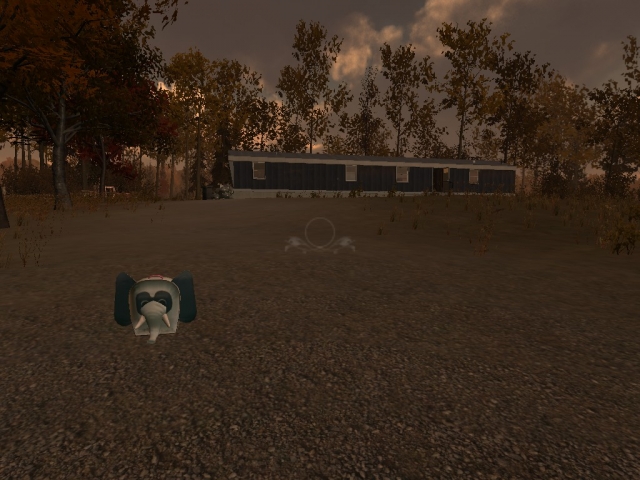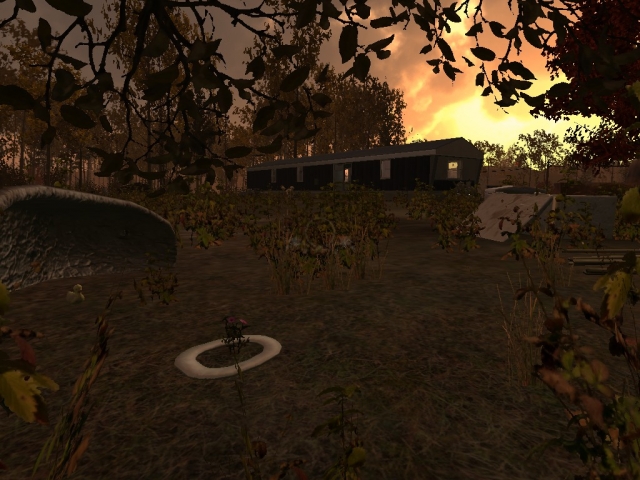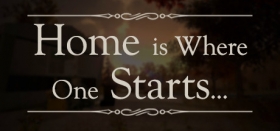
Home Is Where One Starts...
If Gone Home had met its audience, or rather, if the audience had approached it with less gaudy expectations, the game would have resulted in a much more subversive experience than it turned out to be. The game was acclaimed, yes, but dissenters didn’t take long to come out of the woodwork. Some of the criticisms were a lack of interactivity or puffed up pretensions covering up an overly simplistic story. And a great part of this was true; the game did not have deep in-game interactivity, and the final reveal, although not exactly disappointing, was far from grand. However, these are goals the game never aimed at. In fact, I support the idea that much of its strengths came from its grounded, seemingly uninteresting and trivial narrative. It did build up tension for an atmosphere that was never fully solved, although it was arguably collateral to the exploration of the house through the mechanics.
“What does Gone Home have to do with Home Is Where One Starts…?”, you might be asking. A lot. These two games share elements ranging from from the most basic mechanics to the overarching personal themes. However, although they may look identical, the small differences are magnified with a different approach to the story. Unlike in Gone Home, the events Home Is Where One Starts… are a memory. This allows for the scenery to be a bit more malleable to what it’s remembered. Just like a memory play, a theatre trope where elements are embellished due to their sentimental value. Gone Home was a present experience, as we explored the house and discovered the incidents at the same time our character did. In HIWOS, we relive bits and pieces the protagonist remembers from a past experience, so a voice-over narrates much of her feelings when you come across significant objects. Much like Dear Esther, there is a great deal of information that is made explicit through these lines, but the key is that none of it is essential, but it doesn’t feel excessive. Everything can be read through the music, the objects and their placement, but it’s made personal by relating it to the girl who’s describing her emotions.
 The story begins with our protagonist standing in front of the trailer where she lives, having missed the school bus and finding herself alone while her dad is at work. Then we’re given control of the girl. We move around the allotment, interacting and inspecting objects lying around in first person, and a very slow pace, accompanied by a mellow and suggestive piano. As we wander around, we get familiar with the landmarks in the garden, the interior of the house and most importantly, those places we have no access to. Most games have a delimited map, in many occasions by invisible walls, setting boundaries to the places you can and can’t go, and HIWOS is no different. What really catches our eye is the shed, visibly locked and located in a place that makes it impossible to miss. However, throughout my gameplay, it never became the centre of my attention, or crucial; it simply was something to keep in mind.
The story begins with our protagonist standing in front of the trailer where she lives, having missed the school bus and finding herself alone while her dad is at work. Then we’re given control of the girl. We move around the allotment, interacting and inspecting objects lying around in first person, and a very slow pace, accompanied by a mellow and suggestive piano. As we wander around, we get familiar with the landmarks in the garden, the interior of the house and most importantly, those places we have no access to. Most games have a delimited map, in many occasions by invisible walls, setting boundaries to the places you can and can’t go, and HIWOS is no different. What really catches our eye is the shed, visibly locked and located in a place that makes it impossible to miss. However, throughout my gameplay, it never became the centre of my attention, or crucial; it simply was something to keep in mind.
As we step into the house, it’s easy to see how deteriorated both the house and the family are. There are flasks, dirty clothes, empty cigarette packs and rubbish lying all around. The house hasn’t got much stuff, but every single object is meaningful. What’s more important is everything that the house lacks, like pictures, books or mirrors. The house seems to solely contain unnecessary objects, only having colour and life in the protagonist’s room, where we see open books, posters and toys. This fits perfectly as the story is meant to be told by the narrator from a memory, highlighting that which is particularly meaningful to her — whether it’s good or bad.
Although the house is the place most relatable to her background, the same concept of what is there and what is not is carried to the pond, the backyard or the girl’s ‘cave’. Symbolism is represented mostly with flowers; they are usually the only colourful spot among a gradient of browns and greys. At some points there are other objects, like a drawing, a photograph or a football, but the flowers seem to pop up in the most unexpected places — like a fireplace in ruins or the graveyard. Among all the sadness and frustration evoked by the house, the absence of a mother and an alcoholic father, we seem to find a bit of hope, something beautiful to hold onto, and this keeps us going. At a point, you may not know where to go in the game, but there’s always a landmark in the horizon that you haven’t visited yet, and maybe that makes the plot advance.
 As you see more of the girl’s safe havens, where she could hide from a broken family, we understand more and more about her frustrations, making us desire something more, eventually leading us to the shed. In the same way as the rest of the objects in the game, what we find in the shed is not something out of the ordinary. What it represents though, for you and for the girl, as an endgame and a way to free herself, is perfectly translated to the mechanics. At this point the narrator becomes a bit too explicit, but the metaphor ending the game is just mind-blowing.
As you see more of the girl’s safe havens, where she could hide from a broken family, we understand more and more about her frustrations, making us desire something more, eventually leading us to the shed. In the same way as the rest of the objects in the game, what we find in the shed is not something out of the ordinary. What it represents though, for you and for the girl, as an endgame and a way to free herself, is perfectly translated to the mechanics. At this point the narrator becomes a bit too explicit, but the metaphor ending the game is just mind-blowing.
At slightly over twenty minutes long, HIWOS is concise, relatable and visually beautiful. Surprisingly, you never feel alienated from the girl’s past experiences, as it uses just about the information you’re given. The piano melody is slow, emotionally-loaded and prompts you to reflect on the girl’s situation. The mechanics are simple, but conveying, and although the interactivity with objects is quite reduced, the level design and the attention to symbolism in the objects is meaningful and on point.
Home is Where One Starts... (Reviewed on Windows)
Excellent. Look out for this one.
Despite having a questionable price for its duration, this game is no disappointment. The artistic effort that's been put into symbolism and narrative make this game a hidden gem.









COMMENTS